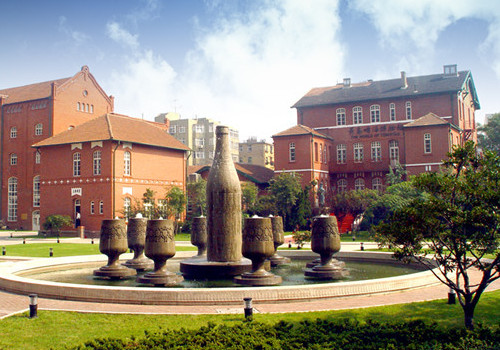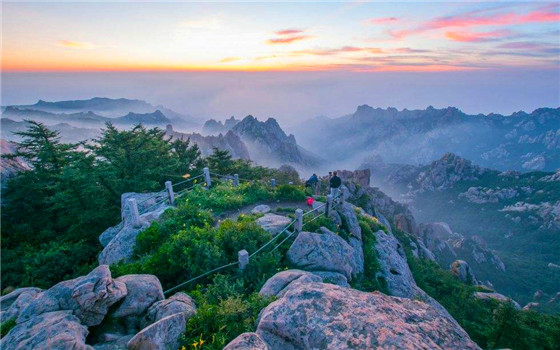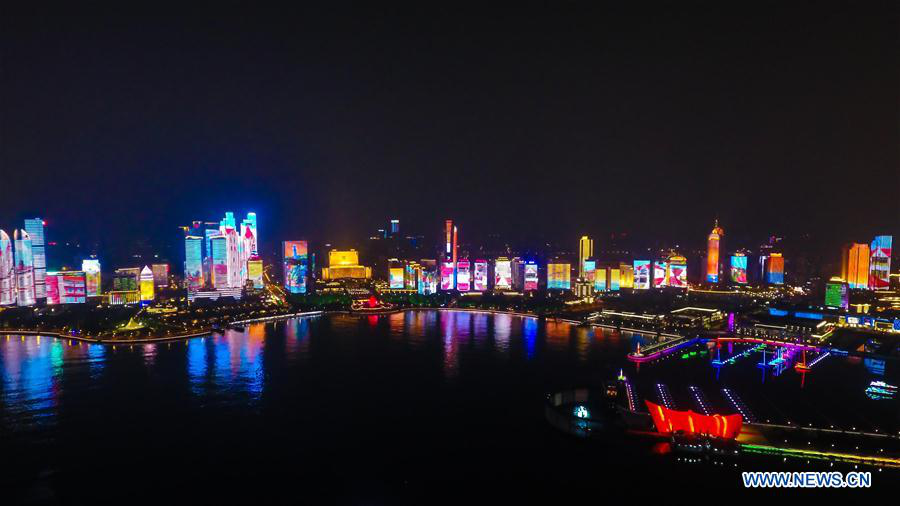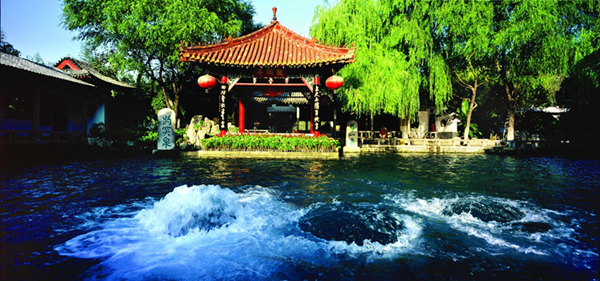A 3-day trip in Shandong province

Qingdao began offering 72-hour visa-free entry for international transit passengers from 51 countries on Nov 16, 2015.
Transit passengers from 51 countries including France, the United States, Italy, Brazil, Australia, South Korea, Japan and Singapore can stay 72-hours within Shandong province after they have entered China via Qingdao International Airport, as long as they have third-country visas and confirmed plane tickets to leave for another country within the time limit.
The below provides a suggested itinerary for a three-day trip in Shandong province.
Day One: touring Qingdao
With white beaches, European-style architecture, well-preserved heritage and the Laoshan Mountains, a sacred site for Taoists, Qingdao has long attracted tourists from around the world.
In the morning you can visit the Badaguan scenic area. Known for its garden villas and Western-style buildings, the Badaguan scenic area has been labeled a "world expo of architecture".
With its year-round blossoms and green leaves, it is perfect for sightseeing at any time, whether on foot or by car. Built during the late 1800s and early 1900s when Qingdao was a German concession, it is testimony to the city's century-old evolution.

Tsingtao Beer Museum. [Photo/qingdaonews.com]
If you are a beer buff, then Tsingtao Beer Museum is a must-go in the city, which is home to the world-famous Tsingtao Beer.
The museum is located at No 58 Dengzhou Road, the "birthplace of Tsingtao beer" where for more than a century Tsingtao has produced its quality beverage for domestic and international markets.
Divided into history & culture of a century and production and multi-media sections, the Tsingtao Beer Museum covers over 6,000 square meters and gives visitors a rare insight into the origins and long history of Tsingtao Beer.
The first floor of the museum's multi-media area gives up to 100 visitors at a time a chance to taste some fresh Tsingtao beer before they browse for souvenirs. The second floor hosts an array of interactive equipment, which is both entertaining and educational.

Laoshan Mountain of Qingdao, Shandong province.[Photo/qingdaonews.com]
In the afternoon, you can visit Laoshan Mountain, which is famous for being one of the cradles of Taoism, as well as for its historic temples. It is only one hour's drive from downtown Qingdao.
The ancient trees, together with plentiful birds and more than 1,000 kinds of flowers in spring and summer, help make Laoshan popular with nature lovers.
One of the most attractive spots is Beijiushui - or North Nine Waters - which flow through many bends, each noted as "a water".
The mountain is also known for its mineral water, which is said to invigorate digestion and circulation - perhaps one of the reasons Tsingtao Beer is so popular.
Laoshan Taoism has a very long history. It exerted a great influence as early as 2,300 years ago.
Taiqing Palace is the oldest and largest Taoist temple on Laoshan Mountain, dating back 2,100 years. Built during the Western Han Dynasty (206BC-AD24), the complex reached its current size - 30,000 sq m with 140 structures - during the Song Dynasty.

Photo taken on May 7, 2018 shows the night view of Fushan Bay in Qingdao, East China's Shandong province. [Photo/Xinhua]
At night, you will want to enjoy the spectacular view of the coastal city. Some of the best destinations are May Fourth Square, Qingdao Olympic Sailing Center and Fushan Bay.
Pichaiyuan is the snack area where you can taste all kinds of traditional Qingdao snacks such as fried dumplings, tofu jelly and shrimp wontons. There are about 40 restaurants in the courtyard on Zhongshan Road in Shinan district.
You can also visit the Qingdao Beer Street on Dengzhou Road in Shibei district, which boasts more than 50 bars and eateries. It is impossible to miss, as the road is painted green.
Day Two: touring Mount Tai in Tai'an
It takes around three hours from Qingdao to Tai'an by high-speed train.
With an elevation of 1,545 meters, Mount Tai is the highest peak in Shandong. It is reputed as the "Chief of the Five Sacred Mountains" and the "First Mountain Under Heaven".
Mount Tai was the object of an imperial cult for nearly 2,000 years, and the artistic masterpieces found there are in perfect harmony with the natural landscape. It has always been a source of inspiration for Chinese artists and scholars and symbolizes ancient Chinese civilizations and beliefs.

The Dai Temple stands silhouetted against an orange-tinted evening sky in Tai'an, Shandong province. [Photo by Shi Yunpeng/ WeChat account:sdtxta]
You can tour Mount Tai via the classic middle Red Gate Route, which is the highly recommended way to experience the most cultural and natural landscape of the mountain.
With more than 7000 winding paths of 9.5km, the Red Gate Tour Route effortlessly blends ancient and modern China. Known as the "scenic area to heaven," it has for many centuries hosted mountaineers and is a tranquil area with secluded scenery along the way.
You will begin from Dai Temple to Red Gate Palace, then get to Wanxian Tower, and then finally the main peak Jade Emperor Summit for about four to six hours' hiking. Along the climbing paths, you will drop by scenic spots such as Daizong Archway, Doumu Palace, Hutian Pavilion, Southern Heavenly Gate and Confucius Temple.
Day Three: touring Jinan
It only takes less than 20 minutes from Tai'an to Jinan by high-speed train.

The iconic Baotu Spring of Jinan, capital of East China's Shandong province. [Photo provided to chinadaily.com.cn]
Jinan, capital of Shandong province, is known as the "City of Springs" because over 700 natural springs run through it, of which 72 are widely known.
You can explore and experience the true essence of the city by visiting a number of renowned scenic spots, such as the iconic Baotu Spring, the Daming Lake, the Spring City Square and the Qushui Pavilion Street, all in the downtown area.
In the afternoon, you may take the return train to Qingdao. The trip is around three hours by high-speed train.




